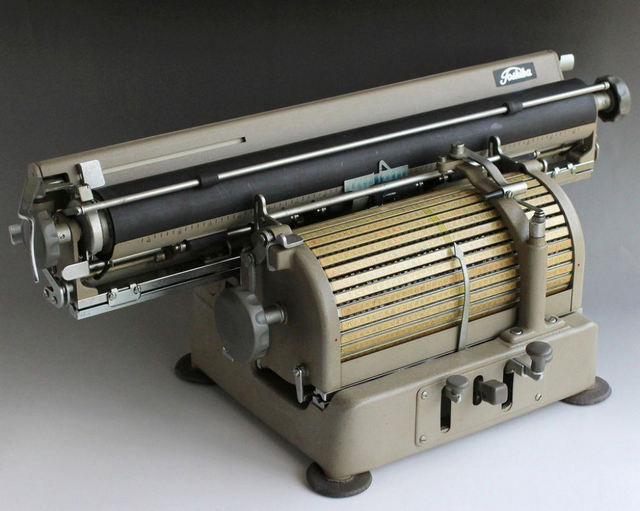There was a time, soon after the widespread adoption of telegraphy in the 19th century, when the written Chinese language seemed to be lost. Or at least do it for some intellectuals considering the effects of such a powerful global communication technology developed by simple Latin alphabets. And since it was inappropriate as the Chinese writing system had to appear in the telegraph world, it would bring a seemingly heavy burden to the world of typewriter.
1940s Rare Toshiba Typewriter
Only in 1916, thanks to the efforts of a US-trained Shanghai-based engineer Hou-Kun Chow, when the Chinese typewriter began, he built around a large, rotating cylinder that could print 4,000 ideas (that is, each representing a different word or sound) characters. From then on the point of the emergence of the Chinese typewriter was very fast at that time. And it has not only happened in China: Japan, its written language that incorporates many characters with Chinese ideas, has been under the strong influence of Western technology since the opening of foreign trade in the 1860s.
Just one year after its inception in 1939, electosh-giant-to-be electronics Toshiba (a compound product that included Japan's first telegram maker) produced Japan's first circular typewriter. “Mostly used by the Japanese military during World War II,”
“Says the Vintage Typewriter Museum, it incorporated 630 characters. After the war “Toshiba introduced a new model, the 1200 A, featuring 1172 Japanese and Chinese characters.”
Produced before the launch of the "Western-style" keyboard, the Toshiba BW-2112 has the same interface as its predecessors: "The character is selected by rotating the cylinder and moving it upwards, so that the required character is selected with an index indicator," According to the Vintage Typewriter Museum. of the printer is pressed, the type thread is pressed upwards from the cylinder, and the type hammer shifts to the center to print the letter on paper. "
Japanese Typewriter
Japanese vintage typewriters still haunt their viewers as the marvels of engineering, even though their main store of the time (which included not only Chinese-based kanji but phonetic or even the Latin alphabet) has long been outdone by digital technology. Now that each student's smartphone puts all the 50,000 or so Chinese characters in their hands - not to mention the other written world languages - it's safe to say that they won't be used anytime soon.
 |
| Typewriter script |
Rare Japanese Toshiba Typewriter
Source | Thisiscolossal | Openculture





No comments:
Post a Comment